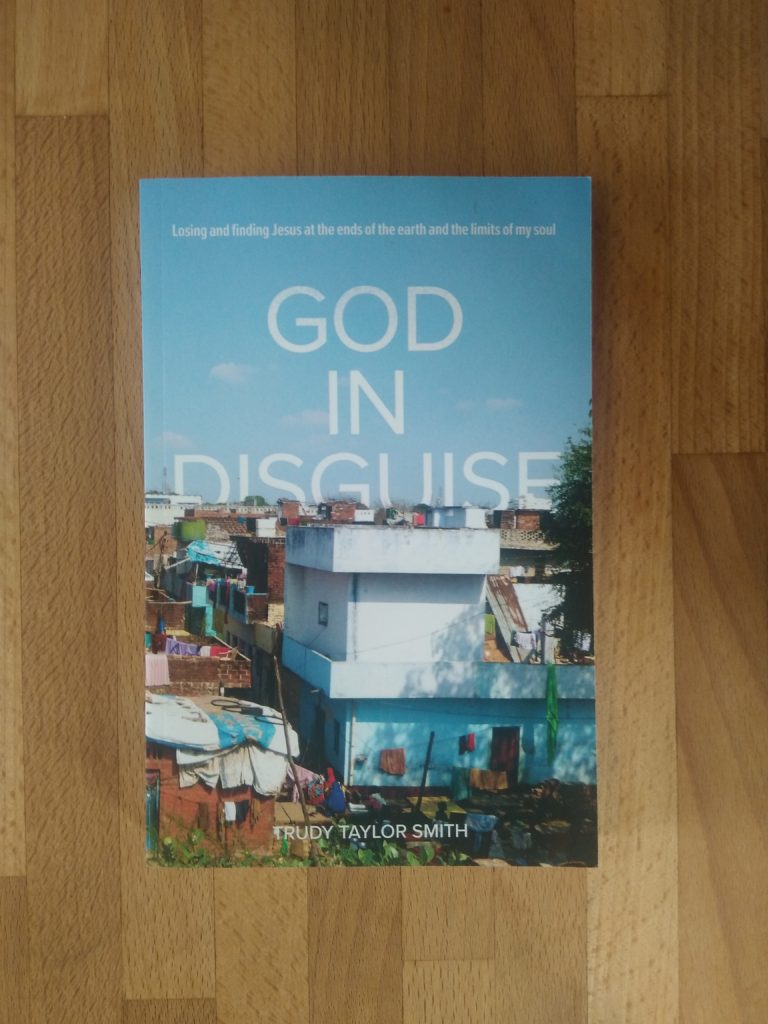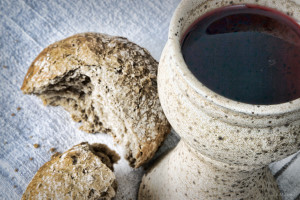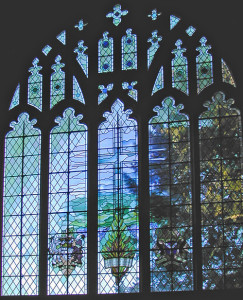This week I read a very insightful article* about cultivating a “spirituality of contentment” through living a simple lifestyle that draws us into greater connection with God, our neighbors, the Creation, and ourselves. The author of this article, Dee Dee Risher, writes as a seasoned veteran of this approach to life, and as someone who is well-acquainted with its particular gifts and struggles. She is aware that “simple living” has the ironic tendency of becoming a very complicated existence which obsesses over material concerns: how many things do we own? How much money do we spend? How many square feet do we live in? According to Risher, all of these material concerns as a tell-tale sign that the external changes in our lives have outpaced the inner transformation of our heart, so that we are ascetically denying ourselves of things without moving toward some alternative. Simplicity, she says, is not about going without. Its about building something new: moving positively toward a fuller life that would have been impossible without the clutter in our lives being cleared away. If we try to throw off the yoke of mainstream culture without developing an alternative dream, then we will never be content because we will always be longing for the very things we have decided to set aside. For most of us middle- and upper-class North Americans, the narrative that has been programmed into us is upward mobility, accumulation of possessions, comforts, and status. It involves making a place for ourselves in the world and then sitting back to enjoy the fruits of our labors, letting others compete with us and fare poorly or well as they may. This is essentially the American Dream. If we want to walk a different path, then we need a different dream to guide us, because merely building our identity or our life in opposition to something will only turn us into a hollow inverse of what we wish to change. We won’t have created anything new.
//
I resonated with this problem of externals outpacing internals. Perhaps that’s exactly what’s happened to me, living in the slum. Up til now, my spiritual growth has always been driven by external experiences. As I have chosen to act on what I felt was right, what I read in the gospels of Jesus’ life, my experiences of reaching out to others to serve them and to get to know them has always led me into deeper understanding and experience with God. External actions and circumstances have seemed to drive internal transformation, and perhaps that’s as it must be, in the beginning. Until we leave the realm of what we already know, how can we encounter anything new, or challenging, or larger than ourselves?
But I think this necessary and appropriate pattern may have led me, somewhere along the way, to mistake the means for the end. Serving the poor is the ultimate goal, I decided, living as simply as possible in the worst possible place and doing as much as possible to help. Alas, I am discovering that the opposite is true: compassion and service and simplicity should be the means of communing with God, of recognizing God in myself and the people around me (especially the suffering poor), and of joyfully living in Love’s embrace.
How did Jesus live? I asked myself. He hung out with outcasts, poor people, blind people, sick people, enemy soldiers, their yellow-bellied tax collector cronies, and heretical half-breeds like the Samaritans. So that’s what I’ll do, I thought. Find the poor and the outcasts, befriend them, tell them that God loves them, and invite them into the community of the Kingdom in which there is always a place for them at the table.
What I failed to realize until I was smack-dab in the middle of the needy crowds, trying to offer hope to the down-and-out people spit out by the system, was that Jesus didn’t just up and begin his mission with the sheer force of willpower. It takes more than principles or warm fuzzies to sustain any kind of long-term commitment to the messy occupation of loving other people, particularly in a demanding and depressing context like a slum. I neglected to pay attention to the forty days of fasting and prayer in the desert which immediately preceded Jesus’ public life, the lonely hours of prayer and solitude which sustained it, and the 30 years of spiritual preparation that preceded it. Jesus was only able to do what he did because of his strength constantly being renewed by God inside Him. He was only able to maintain hope among misery because of his intense awareness of God’s loving presence; to experience joy in the midst of exhaustion and suffering because he was already well-experienced in cultivating an awareness of God’s presence in all circumstances; to weather frequent rejection and confrontation, and eventually total betrayal, because by the time these things happened to him, he had such an unshakeable sense of his identity as the Beloved of God that he was entirely free from the opinions of others—free enough to serve others without any need of gratitude, to love even those who repaid his compassion with hatred.
This incredible love and courage was only possible for Jesus because he had already experienced this unconditional love in the depths of his own being. It had defined him, and it had become the root of everything he did.
//
As for me, all the labor of love has been exhausting, and my feverish attempts to pour myself out has revealed an emptiness in myself that I was never aware of before. Now its impossible to ignore the aching expanse within myself that has yet to be filled with the unconditional love of God. I am yet to claim my identity as the Beloved, and am desperately trying to build an identity for myself out of all the good things I am doing. See how much I suffer! See how much I am willing to sacrifice! My soul yells. I will earn your love yet. And yet…
God is not waiting for a display of faithful obedience, for exploits of courage and self-denial in order to embrace me. He embraces me with my empty hands and tattered clothes, as the beggar that I am. As the child who could ever do anything to make her Parent love her more or less. As the Prodigal son, returned home after all his fruitless attempts at making a life worth living for himself apart from the love of his Father.
I am the poor, I am the sick, I am the rejected. I wait in grief and hope for the mercy of God to reveal my true identity to me, for God to rock me to sleep in strong arms like a newborn baby, safe and wanted and loved. My neighbors often bear their scars and their struggles openly on their faces and in the rough edges of their lives, but mine are hidden inside.
I am the poor and they are me. God is in us, and we are in Him. Perhaps the whole purpose of life is for us to realize, together, the depth of our poverty, and to help one another to accept the Love that will satisfy it.
*Cultivating A Spirituality of Contentment by Dee Dee Risher




